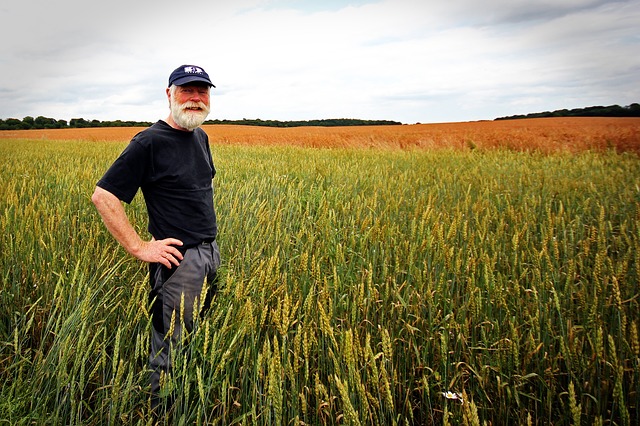

Caring for Older Adults in Rural America
Farming and ranching are special callings and career paths that fewer Americans are choosing. The number of people working in agriculture steadily declined throughout most of the 20th century. According to the United States Department of Agriculture, 16 percent of the labor force was employed in agriculture in 1940, but by the year 2000, that number dwindled to 1.9 percent. The median age of U.S. farmers and ranchers is 58.3 years (2012 Census of Agriculture). Roughly a third of these agriculture producers are age 65 and older — many enduring the decades-long wear and tear of their occupation.
More than 20 years ago, the first Right at Home client was a farmer. Our founder, Allen Hager, hired a caregiver who could drive that farmer around in his beloved ’58 Chevy pickup. Once a farmer, always a farmer. Because of that history, caring for people who care for the land is deeply rooted in our company’s mission to improve the quality of life for those we serve.
We understand that farmers and ranchers are especially independent and resilient, which is why home care is an excellent choice for them. Right at Home Modesto provides care to nearby rural communities, and we are proud to help these self-reliant people age in place with dignity.
Need help right now? Call us anytime at
(209) 579-9445
"Strong enough to clear trees and heave bails, yet gentle enough to tame lambs and wean pigs and tend the pink-combed pullets." ~Paul Harvey “So God Made a Farmer.”
Older Adult Rural Health Risks
Many farmers and ranchers have specific ailments related to their vocations, and it’s important that family caregivers be aware of these conditions as their loved ones age. Additionally, there are health obstacles that include living far away from emergency medical help, care specialists and advanced medical treatments.

Medical
- Musculoskeletal: Spine, joint, ligament and soft tissue injuries can result in chronic pain, arthritis, deformity and lack of mobility.
- Skin: Harsh sunlight, abrasions and contact with pesticides, fertilizers and caustic products can cause lesions, scarring and cancer.
- Respiratory: Asthma and chronic obstructive pulmonary disease (COPD) often stem from exposure to farm chemicals, toxic gases and dust laden with bacteria, mold and animal droppings.
- Hearing: Loud machinery and equipment diminish hearing.
- Vision: Ultraviolet light, metal shavings and other outdoor debris put eyesight at risk.
- Falls, Injuries: Agriculture accidents include slips from farm equipment, ladders and grain bins; tractor/vehicle rollovers; electrocution from farm equipment and power lines; and kicks, bites, etc. from animals.
- Weather hazards: Extreme elements can cause heatstroke, sunburn, frostbite, hypothermia, electrocution (lightning), drowning and more.
Psychological
The unpredictable nature of weather, crop/livestock prices, business debt and safety risks can press farmers and ranchers into feeling anxious, frustrated and isolated. Other factors affecting mental health include the following:
- Rural residents tend to be independent and hesitant to burden others.
- Retirement and moving off the farm can mean loss of identity.
- Passing on the property to the next generation brings its own worries.
Money and Family Challenges
- Costly agricultural equipment accrues major debt for many farmers and ranchers. Shared ownership of equipment means waiting for use and can lead to co-owner conflicts.
- Long-term care insurance could save children from selling the farm to pay for their parents’ care.
- Many farmers and ranchers are land-rich and cash-poor, but can qualify for care assistance. (For more on Medicaid eligibility and property ownership, visit Medicaid.gov.)

Family
- After years of independent living on the land, many spousal caregivers are reluctant ask for help.
- Children can squabble over inheritance of the farm/ranch and selling or renting the land, etc.
- Estate and retirement planning is essential for farm and ranch owners.
Right at Home Care for Rural Families
Medical issues of rural older loved ones may go unnoticed because of their outlying location. Our RightConversations guide and supplemental materials can help farm and ranch families work through hesitancies and concerns in seeking in-home care and assistance. Cooperative extension offices and public health offices offer additional resources for agricultural health and safety to help farmers and ranchers age well into their sunset years.